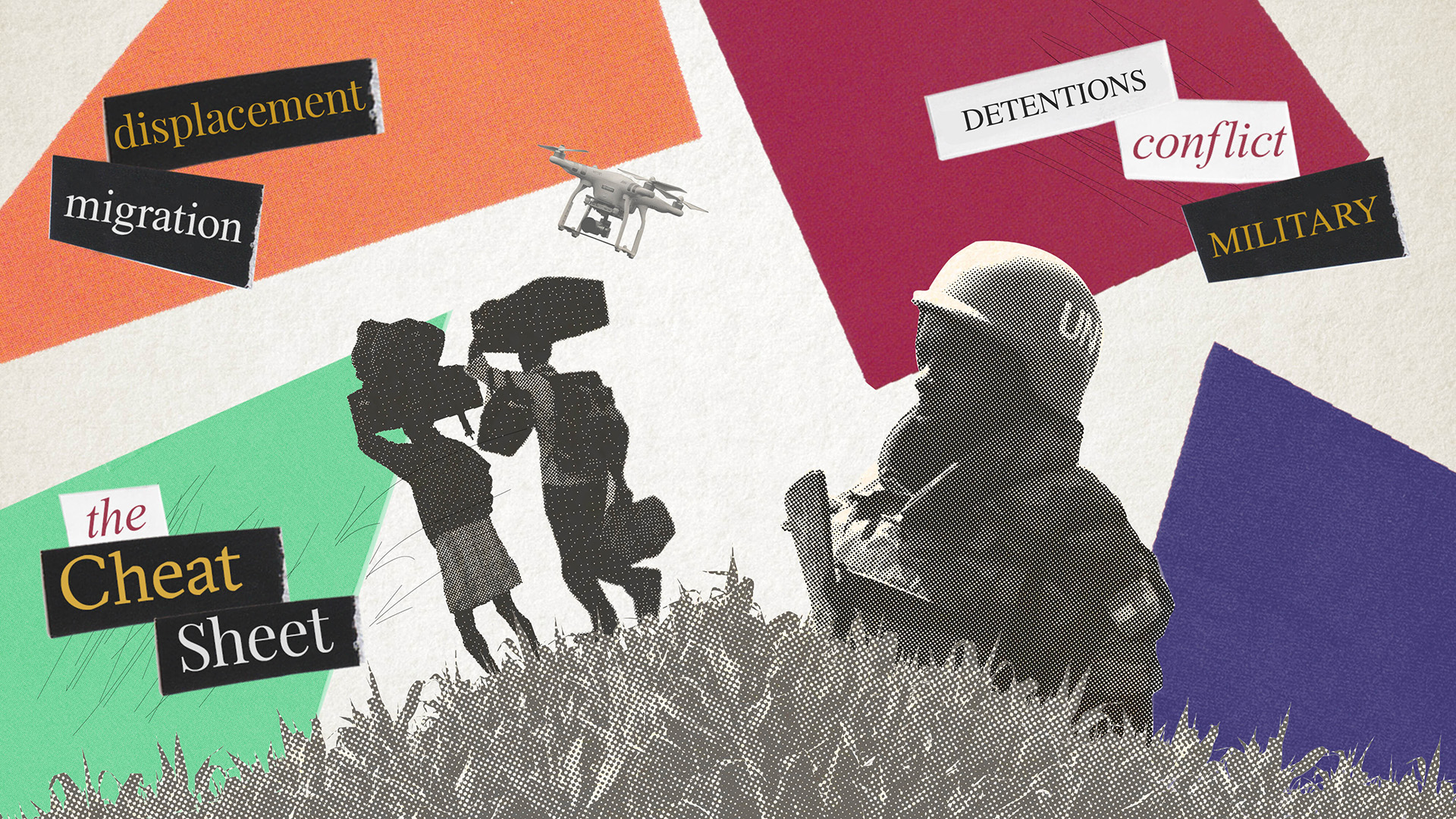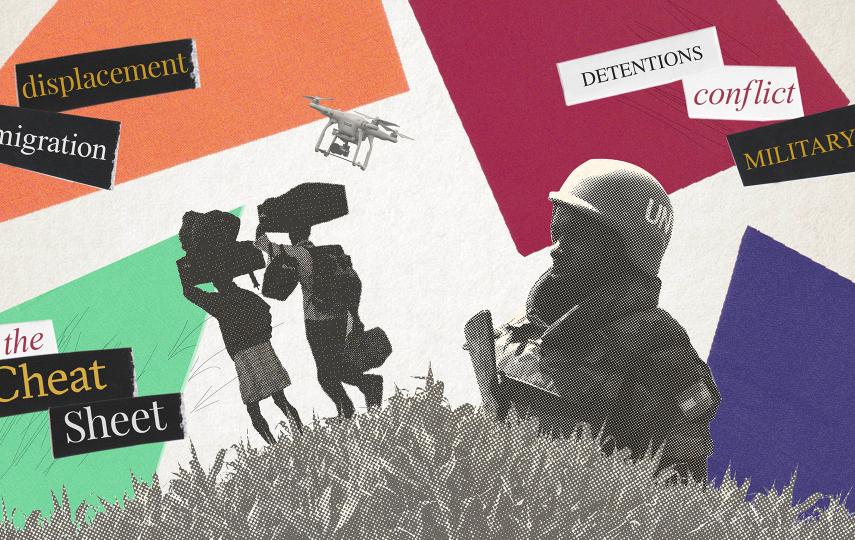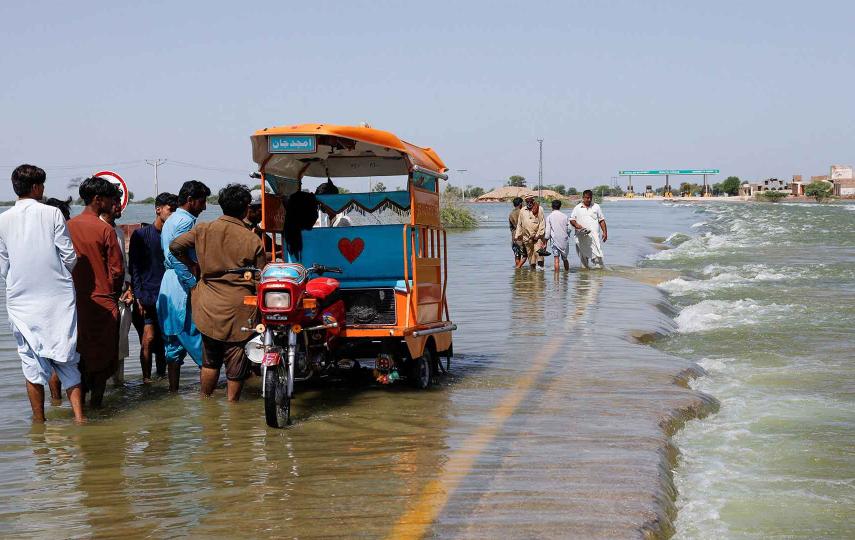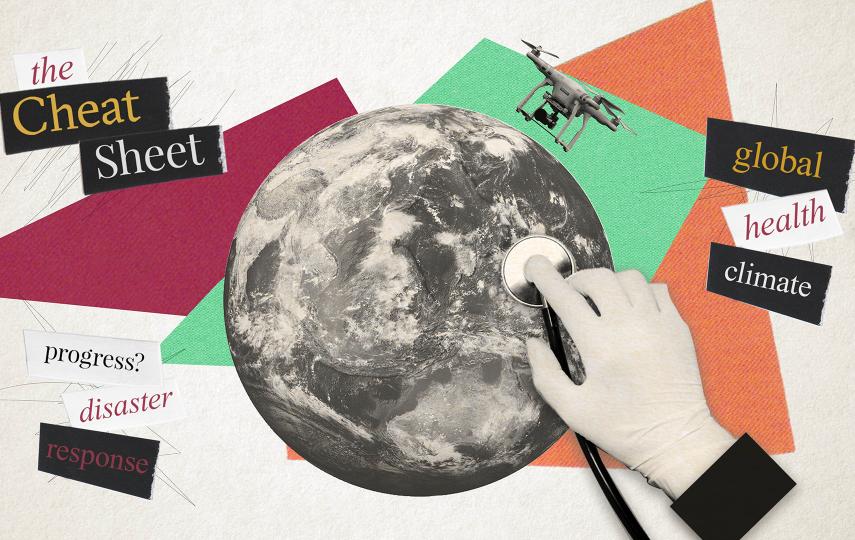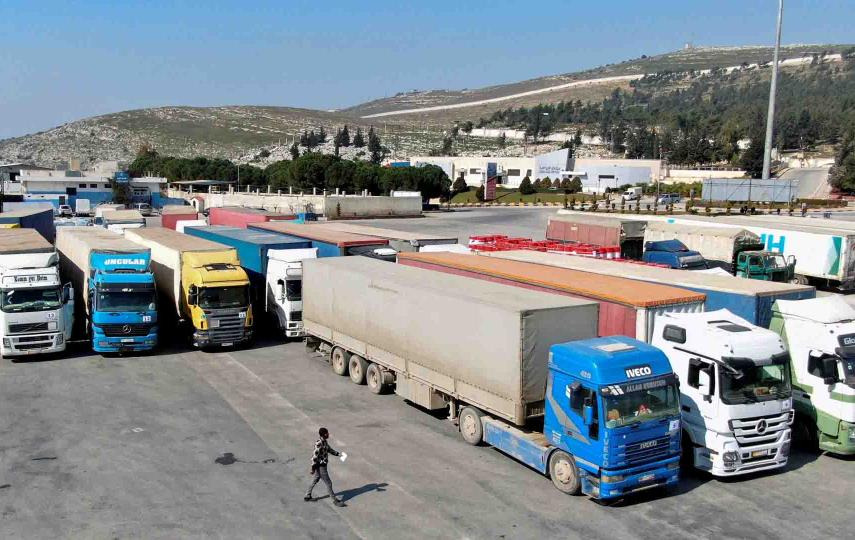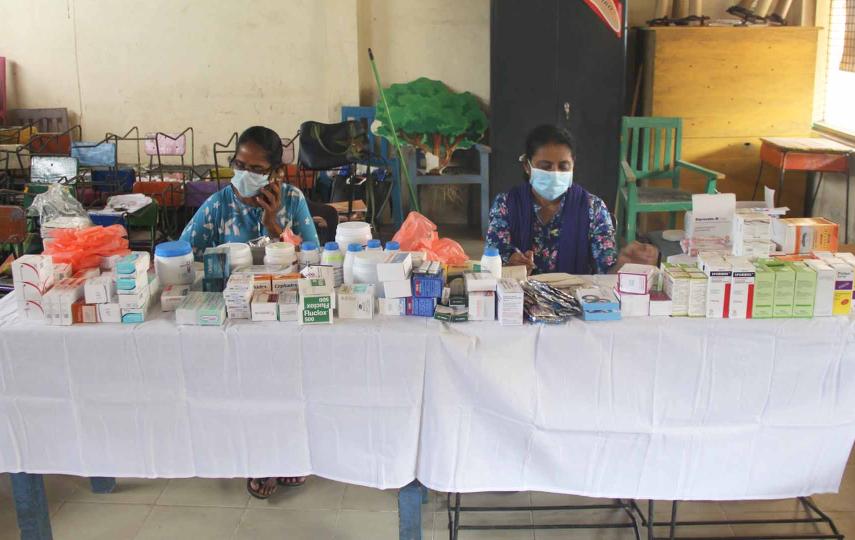Our editors’ weekly take on humanitarian news, trends, and developments from around the globe.
On our radar
Wagner’s future in Africa in question following mutiny
Leader of the Wagner Group Yevgeny Prigozhin’s aborted mutiny has focused scrutiny on the fate of his mercenaries operating overseas in Africa. Several thousand contractors are active on the continent, raking in cash from business ventures and – in the case of Central African Republic and Mali – keeping threatened regimes afloat. Russian Foreign Minister Sergei Lavrov said African states are free to decide the future of their Wagner contracts. And observers say short-term change is unlikely given the scope of Wagner’s commitments, its local savvy, and the time needed to restructure operations. Yet the Kremlin’s goal of bringing Wagner under Russian army command – the main catalyst for the revolt – may threaten the company’s Africa operations as well as its forces in other regions. Local authorities may also be leery of risking ties with Moscow, however much they depend on Wagner. Fidèle Gouandjika, a Central African Republic official put it bluntly: “Russia gave us Wagner, the rest isn’t our business. If it’s not Wagner anymore and they send Beethoven or Mozart, it doesn’t matter, we’ll take them.”
Ceasefire violations and aid stumbling blocks in Sudan
Sudan’s warring military factions – the army and the paramilitary Rapid Support Forces (RSF) – both declared unilateral truces this week for the Muslim festival of Eid al-Adha. True to form, they both then promptly broke them. Airstrikes and anti-aircraft fire were reported in Khartoum, and the RSF carried out lethal attacks in the western Darfur region. With the conflict stalemated, the military called on youth around the country to fight against the RSF, either in their neighbourhoods or by joining the armed forces. The number of people internally displaced has, meanwhile, risen to 2.2 million (though that is considered an undercount) and an estimated 650,000 have crossed over into neighbouring countries. Community-based mutual aid networks remain the backbone of the response, especially as international relief efforts are held up by insecurity, funding constraints, and a long list of bureaucratic obstacles imposed by local authorities.
EU border agency mulls Greek operations freeze over abuses
The EU’s border agency, Frontex, is considering suspending activities in Greece due to human rights abuses against asylum seekers and migrants. The recommendation was made in a report compiled before a 14 June shipwreck that may have killed up to 650 people. Fallout from that tragedy has continued. The Greek Coast Guard’s version of events has been heavily disputed, with survivors and NGOs saying the coast guard failed to render assistance despite multiple requests. Some of the 104 survivors also alleged that the coast guard attached a line to the boat and attempted to tow it, which contributed to its capsizing. Nine Egyptian men who survived the shipwreck have been arrested on people smuggling and manslaughter charges for allegedly piloting the boat. But activists say those accusations were made on slim evidence. Asylum seekers and migrants are frequently wrongfully accused of people smuggling and struggle to access fair trials in Greece and other European countries, as we reported last year. Further evidence of potential rights abuses against asylum seekers and migrants also emerged this week with a video released by an NGO of 14 men in the back of a van on the island of Kos with their eyes taped shut.
Red Cross president to step down
Francesco Rocca will resign as president of the International Federation of Red Cross and Red Crescent Societies (IFRC), the organisation confirmed. Rocca made headlines in June when, as president of Italy’s Lazio Region, he withdrew support for Rome’s pride parade. In a 20 June letter, Rocca announced he would resign once a replacement is chosen. “He decided to resign to protect the IFRC,” an IFRC spokesperson said. The controversy is the public end of an ethical debate simmering within the federation. It also sped up Rocca’s departure, which he had already declared would take place at the IFRC’s general assembly in 2024, where “a new set of ethical standards” were to be proposed, according to a summary of the IFRC’s governing board’s May meetings, seen by The New Humanitarian. During those meetings, committees advised that there were currently “no obvious impediments” to Rocca holding both roles – a response to criticism from some national Red Cross societies. For now, there’s no public timeline to find Rocca’s replacement. The IFRC will continue with a “constitutional review process” for 2024, and “an ethical committee will be set up to deal with issues such as conflict of interest”, the spokesperson confirmed.
Is Europe’s label as the world’s most ‘peaceful’ region warranted?
Europe is the world’s most peaceful region, although it is less peaceful than it was 15 years ago, largely due to Russia’s invasion of Ukraine, according to the 17th edition of the Global Peace Index, released at the end of June by the Institute for Economics & Peace. The index uses 23 criteria – ranging from levels of perceived criminality to military expenditure and relations with neighbours – to measure “peacefulness” in 163 states and territories. The ranking is heavily weighted towards internal peace, making the assumption that the more internally peaceful a country is, the less likely it is to be a bad neighbour. Critics have questioned the usefulness of the criteria, and it seems strange to imagine European “peacefulness” can be divorced from the lack of peace in regions where its past and present actions and policies have, at least partly, contributed to humanitarian catastrophe – or from the racist (and very unneighbourly) migration policies that contribute to the deaths of thousands on the continent’s doorstep.
Just don’t say ‘climate refugees’
The UN should update its 70-year-old refugee convention to address the growing number of people displaced across borders by the climate crisis, the UN’s special rapporteur on climate change said. Speaking at the Human Rights Council in Geneva on 27 June, Ian Fry said there’s an “urgent need” to protect the rights of the displaced as the climate crisis builds. While few argue with the need to address climate displacement, how to go about it is a sticky subject. Many legal experts – and the UN’s two main agencies for displacement, UNHCR and IOM – shun the term “climate refugees”, saying that it’s misleading or could even undermine existing protection law. When trying to address the issue, some countries have opted for top-down approaches. New Zealand, for example, proposed a humanitarian visa for neighbouring Pacific Islanders. But rather than an invitation to become refugees, it turns out the islanders wanted action on reducing emissions, help for communities to adapt and stay put, and legal options to migrate for work. Most climate displacement is also internal (not to mention those who cannot move). Still, as climate displacement escalates, there will be more calls to fill in the missing legal and policy links, including among humanitarians.
In case you missed it
AFGHANISTAN: In its first report on civilian casualties in Afghanistan since the Taliban’s Islamic Emirate returned to power, the UN says self-proclaimed Islamic State forces were the cause of the majority of civilian casualties in Afghanistan. Of the 3,774 civilian casualties the UN documented between 15 August 2021 – the day the Taliban returned to power – and 30 May 2023, three quarters were caused by indiscriminate IEDs, mostly suicide bombings, in populated areas, including places of worship, schools, and markets.
AUSTRALIA: The last asylum seekers held by Australia at a detention centre on the Pacific island of Nauru were removed on 24 June. The policy of sending asylum seekers to offshore processing centres – heavily criticised by rights groups – began in 2012. Despite being emptied, Australia will maintain the camp on Nauru for potential future use. As attitudes towards asylum seekers have hardened, other Western countries – including Britain and Denmark – have sought to replicate the Australian model. For more, see the entry below on Rwanda-UK.
CLIMATE: China appears set to achieve its renewable energy targets for 2030 five years early, according to a report by Global Energy Monitor. President Xi Jinping pledged in 2020 to install over 1,200 gigawatts of solar and wind power by 2030, and the country is expected to surpass this target by 2025. While China remains the world’s largest greenhouse gas emitter, and coal remains its main energy source, the report acknowledges China as the undisputed leader in solar and wind deployment.
ETHIOPIA: Government officials in Tigray have recorded more than 700 hunger-related deaths in recent weeks, following a freeze on the delivery of food assistance by the US Agency for International Development and the World Food Programme. The pause was implemented after the discovery of a widespread aid diversion scheme. See our recent reporting from Tigray on the impact this is having on communities still reeling from war.
GERMANY/AFGHANISTAN: After a three-month pause, Germany has resumed a humanitarian admission programme for at-risk Afghans. Launched last November, the programme aims to bring up to 1,000 per month to Germany. Its suspension left thousands in its pipeline stranded in Iran, Pakistan, and Afghanistan. The programme currently has a 14,000 person backlog and will likely still be slow getting up to speed. Activists have criticised the programme as presenting a “low number of total admissions as a heroic feat”.
HONDURAS: With violence soaring, President Xiomara Castro has turned to El Salvador-style policies to crack down on gangs. On 24 June, 13 people were killed in a pool hall shooting in the city of Choloma, just five days after 46 female inmates were killed during a fight between gangs in a prison near the capital. Castro has imposed a curfew both in Choloma and in San Pedro de Sula, as well as special raids and 24-hour checkpoints.
ROHINGYA DENGUE: Dengue, a mosquito-borne disease, is spreading amongst the cramped Rohingya refugee camps in Cox’s Bazar. There were nearly 1,300 cases reported as of 6 June, and 26 deaths. With the monsoon season approaching, officials worry the case numbers will only increase. Nearly one million refugees live in Cox’s Bazar, and with aid dwindling, challenges abound. Women and girls face a disproportionate risks, including access to healthcare, child marriage, and sexual exploitation and abuse.
RWANDA/UK: A plan by Britain’s Conservative government to deter migrants and asylum seekers from crossing the Channel from France on small boats by sending them to Rwanda while their asylum claims are processed has been ruled “unlawful”. The Court of Appeal argued that Rwanda is not a safe third country. British Prime Minister Rishi Sunak has vowed to take the matter to the UK’s Supreme Court.
SYRIA: The UN General Assembly voted on 29 June to create an independent body to determine the fate and whereabouts of more than 130,000 people who have gone missing during the conflict in Syria. The decision, proposed by Luxembourg, aims to resolve the problem of insufficient coordination among the bodies dealing with missing people in Syria. Syria’s UN ambassador opposed the new body, accusing member states of interfering in the country’s affairs and saying Syrian law enforcement already investigates missing persons.
VENEZUELA: The International Criminal Court will resume an investigation into alleged crimes against humanity that was suspended in April 2022 when Nicolás Maduro’s government requested the court to defer to its own inquiries. ICC judges ruled that Venezuela has fallen short in its investigation, focusing only on low-level perpetrators.
Weekend read
‘We can't find support’: Three women’s stories of repeated rape by Haitian gangs
For many women and girls in Haiti, the threat of being raped permeates each moment of their daily lives. Gangs have taken over more than 80% of the capital, Port-au-Prince, holding entire neighbourhoods hostage and making the Caribbean country’s humanitarian situation even more dire as the numbers of displaced grow. Some women and girls say they have been raped as many as three or four times, and many more have watched as their husbands, partners, and children have been killed. “We can’t find support. It’s war everywhere,” says Kari, a 39-year-old who already lost her baby and her husband to gang violence before she was raped, then later kidnapped. While held captive, she was beaten and raped again repeatedly over three days before being released naked into the streets. She was one of three rape survivors who told their stories to The New Humanitarian. Even when women manage to escape their rapists, their struggle doesn’t end there. There is often no transport, or clinics have been shuttered because of the violence. Often, women can’t make it to a clinic in the 72-hour window to seek emergency contraception. “My mother keeps crying - she doesn’t see what she is going to be able to do,” says 16-year-old Madeline who was raped repeatedly by gang members. After concluding a 10-day visit to Haiti this week, UN expert William O’Neill described it as a country “bruised by violence, misery, fear, and suffering.” He called for an immediate international arms embargo, and echoed earlier UN calls for the deployment of an international force to work with the Haitian police to restore order.
To hear from the women directly, watch this short “Voices” video.
And finally…
Sunny Honey Home
Many refugees long for the tastes and smells of home, and Ben & Jerry's has tried to capture that feeling with a new flavour of ice-cream called “Sunny Honey Home”. The flavour was co-created by eight entrepreneurs from refugee backgrounds and inspired by the flavours of Morocco, Afghanistan, and Syria. Working together with The Entrepreneur Refugee Network (TERN), proceeds from tubs will fund refugee-led startup businesses. TERN has now supported over 360 entrepreneurs in France and the Netherlands, as well as the UK. Over the years, Ben & Jerry’s has campaigned for causes that have included nature conservation, criminal justice reform, and same-sex marriage. It has also advocated for refugee rights in Europe. The company’s motto? “We believe that ice cream can change the world”.
